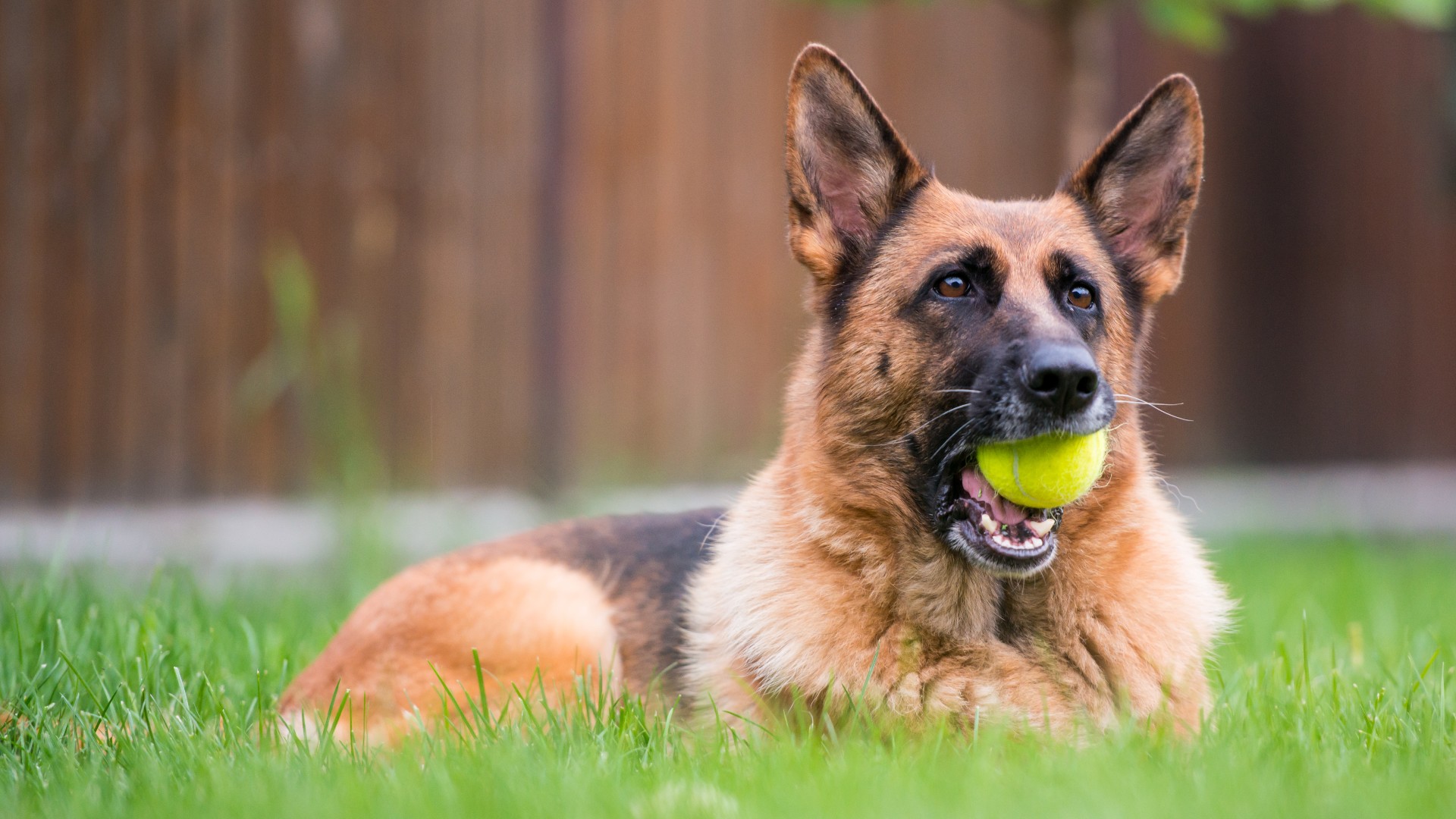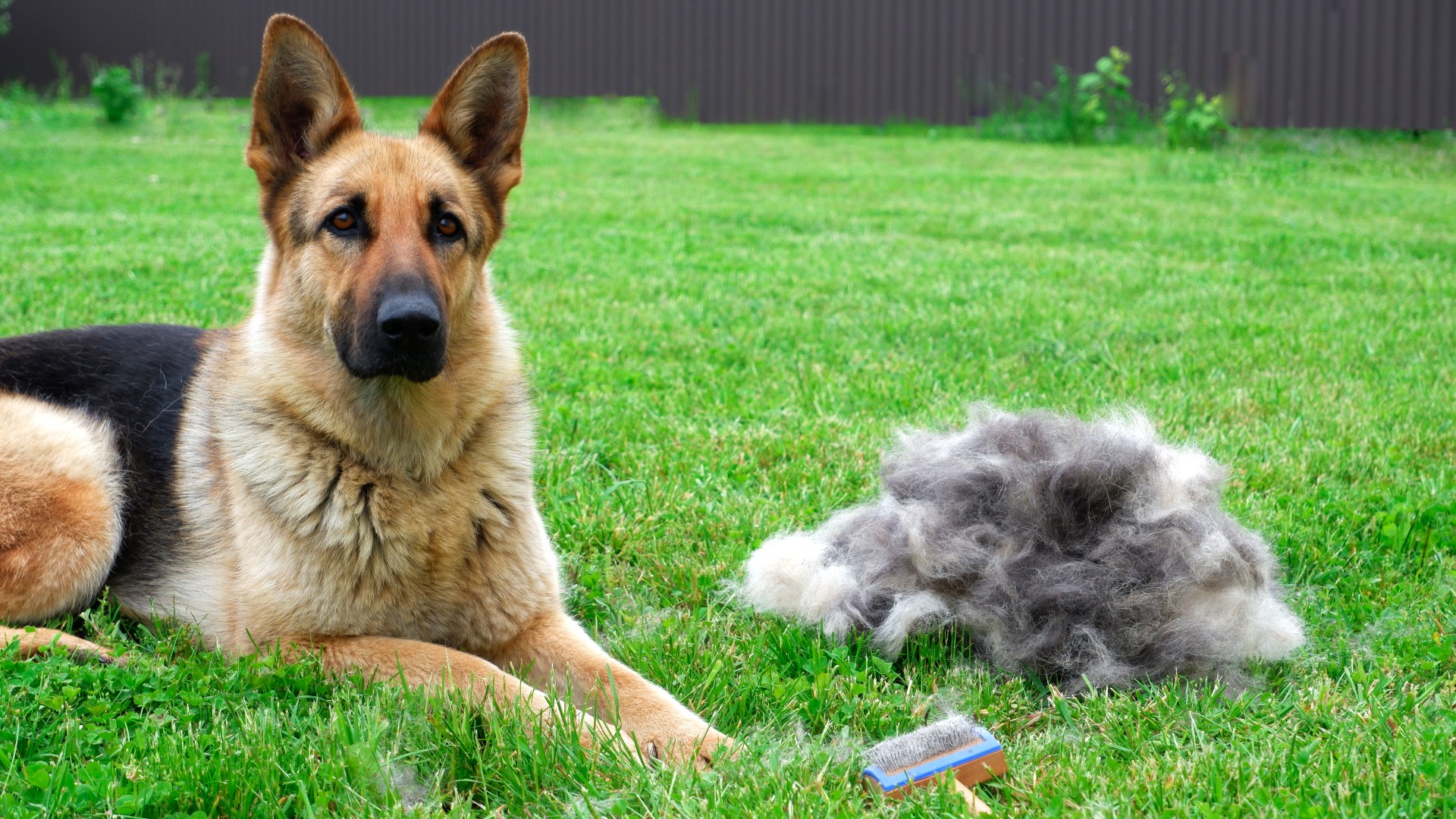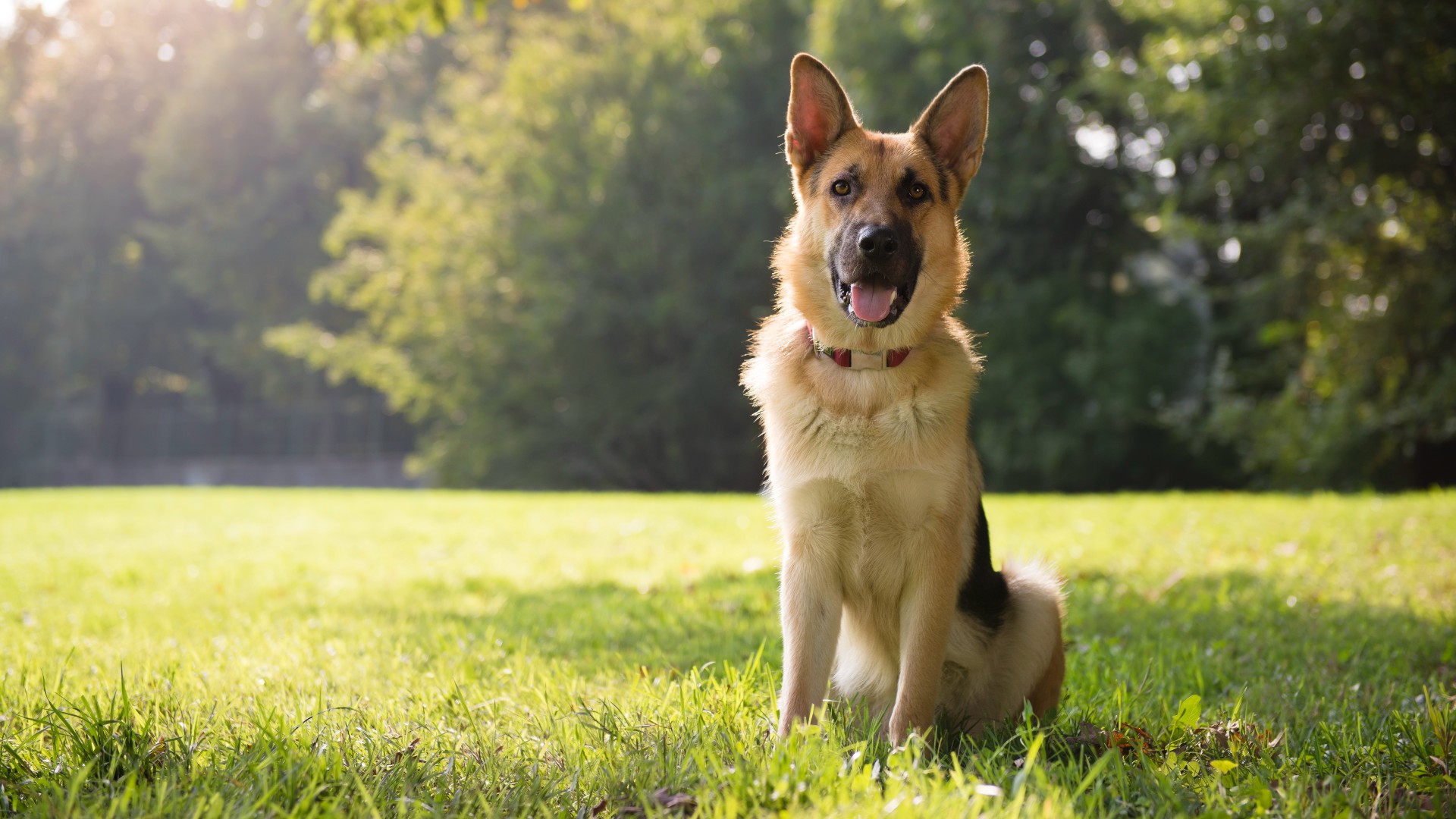Do German Shepherds shed? How to care for your mutt’s mane
If you're considering welcoming one of these courageous canines into your family and are wondering 'do German Shepherds shed?', we have the answer

Get the best advice, tips and top tech for your beloved Pets
You are now subscribed
Your newsletter sign-up was successful
Do German Shepherds shed? It’s a question that often gets asked by those looking to adopt one of the most popular dogs in the world and the answer is a resounding yes. In fact, not only do they shed, but they do so profusely, so that’s something worth considering before welcoming one of these fur balls into your family.
The German Shepherd is one of the most courageous, confident and intelligent breeds on the planet and while their unrivaled loyalty means they won’t hesitate to put their life on the line for those they love, they also make for wonderfully gentle family pets and steadfast guardians. No wonder they’re so beloved.
But there is certainly a downside to owning one of these protective pups and that’s the copious amounts of fur that flies off them year-round. You’ll definitely want to arm yourself with the best vacuum cleaner for pet hair if you’re going to have one of these dogs in your home.
Thankfully, regular grooming sessions and an understanding of the various things that can influence the frequency and degree of shedding can help you keep the molting to a minimum.
Below, we reveal everything you need to know to ensure your Germans Shepherds coat stays healthy and your home as fur-free as possible.
Do German Shepherds shed?
If you have your heart set on a German Shepherd, be prepared for plenty of dog hair. Classified as medium to heavy shedders, this breed has a double coat with the outer coat being incredibly dense.
Unlike some dogs that either shed minimally or only shed heavily twice a year, the German Shepherd is a continuous shedder as well as losing their undercoat in the spring and fall. The spring shedding gets rid of the thick undercoat so they don’t overheat in the summer, while the fall shedding gets rid of the outer coat to help prepare this breed for colder weather.
Get the best advice, tips and top tech for your beloved Pets
Many pet parents are surprised by both the volume and frequency of shedding that goes on with a German Shepherd, so if you’re on the fence about fur, it’s worth spending some time with someone who owns one of these dogs to get an idea of exactly what you’re in for.

What causes the German Shepherd to shed the most?
While it can certainly be annoying to be constantly picking up dog hair all over the place, shedding serves an important purpose for pups. Not only does it help to regulate body temperature across the various seasons but it also helps with sensory perception and protects the skin from injury and disease.
When it comes to shedding, it can be helpful to think of it as occurring as two different types: natural and unnatural. Natural shedding is where the hair goes through its normal growth cycle with old or damaged hair regularly falling away to make way for new hair. You’ll see an increase in natural shedding with the German Shepherd in the spring and fall to prepare for seasonal changes in temperature.
Unnatural shedding is what you want to be on the lookout for as this can often signal an underlying health problem that requires veterinary attention. Atypical fur loss can be caused by the following:
- Poor diet: Ensuring your pup gets a nutritious and balanced diet is vital for keeping their skin and coat in tip-top condition. Ideally, you want to invest in one of the best dog food brands so that your dog is getting everything they need for optimal health. Look for a kibble that has plenty of omega 3 and 6 fatty acids as these do a brilliant job of promoting coat health.
- Stress: It’s a well known fact that German Shepherds tend to get more stressed and anxious than other breeds and that’s due to their high activity levels. When they’re not getting enough mental and physical stimulation, their health can begin to suffer and this can often lead to a loss of additional fur.
- Dehydration: If you find your pup isn’t drinking as much as they should be, it’s well worth investing in one of the best pet water fountains to encourage them to drink up. Dehydration compromises healthy blood flow and oxygen delivery to the skin, which causes it to lose its elasticity, resulting in hair loss.
- Fleas, ticks and lice: One thing that will affect your German Shepherds coat big time is an invasion of pesky parasites. These blood-sucking little beasts will make your dog want to itch and scratch 24/7, damaging the skin and fur. To prevent the wide range of health issues that parasites can cause, be sure to regularly apply the best flea treatment for dogs.
- Health conditions: There are also various health conditions that can cause excessive shedding in dogs, such as Cushing's Disease and hypothyroidism. Allergies can also trigger skin flare ups and cause the hair to fall out.
While you’re always going to have plenty of natural hair loss with a German Shepherd, baring the above points in mind will help you to understand when it might be becoming excessive so you can seek advice from your veterinarian.
How to groom your German Shepherd
Good fur grooming is a must when it comes to having a German Shepherd as not only will this keep their skin and coat looking its best, but it will help keep that shedding a bit more manageable.
We recommend you invest in several of the best dog brushes to make the task of grooming that much easier, including a de-shedding tool to remove the loose, dead undercoat without cutting or damaging the topcoat.
You can use a de-shedding tool on its own for routine brushing, but you might also like to finish off your grooming session with a slicker brush to catch any final bits of dead hair and to give your dog’s coat a nice shine.
When it comes to bathing, it’s advised to keep this to a minimum with German Shepherds as regular bathing strips the skin and coat of its natural oils, which can often lead to more shedding. Unless they get super dirty, most experts agree that a twice a year dip in the tub is sufficient.

Tips to minimize German Shepherd shedding
While you can expect moderate to heavy shedding year round with a German Shepherd, there are some things you can do to help make all that flying fur a bit more manageable to keep on top of. Here are our favorite tips:
- Regular brushing: Giving your pup a thorough brushing each day will help to remove all the dead and loose hair and will mean there’s far less of it for you to pick up around your home.
- A healthy diet: Feeding your dog the best dry dog food will ensure their coat is getting all the vitamins and minerals it needs to stay healthy. Some brands do breed-specific formulas, so this is well worth looking into.
- Supplements: If you’re worried that your pup may not be getting everything they need for optimal coat health, have a chat to your vet and see whether adding in a chewable or liquid supplement containing omega oils might be helpful.
- The right dog shampoo: You’ll want to keep bathing to a minimum to protect your canine companions skin and coat, but when they do need to go in the tub, choose a dog shampoo that’s been formulated with soothing ingredients such as oatmeal and coconut oil as these will help nourish the fur and keep it in tip-top condition.
Following the above tips will help ensure your German Shepherd’s coat stays in tip-top condition while also minimizing the amount of fur that ends up all over your floors.
And if you’re at all concerned about the amount of fur your pup is shedding, speak to your vet, who will be able to rule out any underlying health conditions and offer helpful advice and guidance.

Kathryn is a freelance writer who has been a member of the PetsRadar family since it launched in 2020. Highly experienced in her field, she's driven by a desire to provide pet parents with accurate, timely, and informative content that enables them to provide their fur friends with everything they need to thrive.
Kathryn works closely with vets and trainers to ensure all articles offer the most up-to-date information across a range of pet-related fields, from insights into health and behavior issues to tips on products and training.
When she’s not busy crafting the perfect sentence for her features, buying guides and news pieces, she can be found hanging out with her family (which includes one super sassy cat and a kitten), drinking copious amounts of Jasmine tea and reading all the books.
She has written for a range of publications, including Fit&Well, Top Ten Reviews, LiveScience, Goodto, and Product Hunt.
